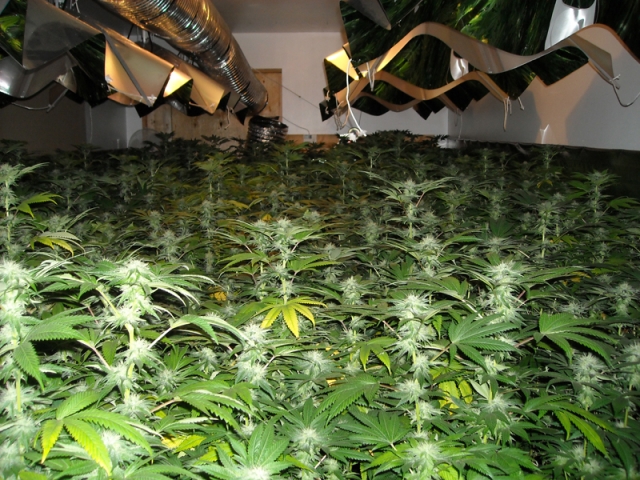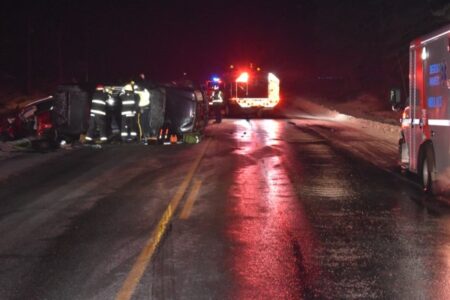Nelson Police Department and RCMP weigh in on organized crime and marijuana in our region
Last week Federal Health Minister Leona Aglukkaq announced that under the new guidelines, patients will no longer apply to Health Canada for medical marijuana, and home production will be phased out.
Prior to the news The Nelson Daily reporter Erin Perkins talked with RCMP Kootenay Boundary regional detachment staff sergeant Dan Seibel and Nelson Police Department police chief Wayne Holland about the marijuana issue in the region.
This is the second of two installments on the state of marijuana in the West Kootenay.
The first part can be read at:
Part two:
The future of marijuana growing and trafficking in Nelson
Marijuana grow operations and trafficking techniques are becoming more and more sophisticated, creating some interesting challenges for local policing agencies.
Many grow ops have moved indoors in our region, making it more difficult for police to detect and prosecute for this illegal activity said RCMP Kootenay Boundary regional detachment staff sergeant Dan Seibel.
Now instead of using aerial surveillance, which is often used in detecting outside crops, police must use more sophisticated ways of finding the indoor operations like monitoring hydro theft and neighborhood complaints. And, when they do find them, they need a warrant to enter the premises, creating another hurdle for police between detection and prosecution.
About three years ago police knew of 75 outdoor grow ops in the Kootenay Boundary area, that number went up to about 100 the following year and then back down to just below 100 in the third year, said Seibel.
This past year RCMP was unable to conduct its usual outdoor marijuana grow operation enforcement due to a high number of incidents — like the sudden deaths at Pines Bible Camp near Christina Lake — the force needed to handle.
These disasters took officers away from there normal day to day duties.
Expansion happens from urban to rural communities
Like organized crime, marijuana grow ops move from urban centers to more rural locations when police turn up the heat.
“Certainly over the last 10 to 15 years police have focused on grow ops and they really exerted pressure both in the courts and in the systematic mowing down of grow operations in the Lower Mainland,” said Nelson Police Department police chief Wayne Holland, who spent much of his career in the Lower Mainland before moving to Nelson two years ago.
“Bad guys were stealing from one another, there were home invasions and people were getting hurt. What was, only two or three decades ago was a modest criminal enterprise, has turned into one that generates billions of dollars in profit for groups that don’t pay taxes.
“So when we turned up the heat in the Lower Mainland … marijuana growers and the organized groups said ‘let’s go rural’ and they went outside into rural British Columbia and has certainly now spread out through various communities in BC and most notably in Nelson. I don’t think anybody would say it is a big reach to state a huge part of the false economy or illegal commodity here is engaged in marijuana grow ops.”
Also thanks to great policing of outdoor grow operations like those busts done by the RCMP Kootenay Boundary regional detachment; Holland has seen another disturbing shift in the past year from predominantly outdoor grow ops to indoor ones in the Nelson area.
There are two reasons for this transition, one is that it is harder to detect an indoor grow op that is set up right and the second is because the THC, or tetrahydrocannabinol which is the ‘drug’ component of the marijuana plant, is more potent in product grown indoors than in outdoors, said Holland.
“The gangs have now realized that if they grow the marijuana indoors the THC, or potency, and productivity and the value of the product, is much higher when grown out doors,” Holland explained.
“We’re a little concerned because they are smart people in a lot of ways and they have gone back into making grow ops to occur in houses and residents. That creates the specter of airborne pathogens from the chemicals they use and there are certainly dangers to families who live close or next door to houses were grow ops are and there is the hydro theft, the fire hazards and the potential for home invasions from other criminal groups.”
Medical marijuana licenses being abused, further supporting underground economy
Medicinal marijuana licensing fraud is the newest opportunity criminals are capitalizing on both nationally and right here at home.
“Thousands of people have applied for and received exemptions to produce marijuana for their own useful medical purposes,” said Holland.
“We have no objection to people who legitimately need marijuana as treatment for a disease. However, there are people who are criminals who leap at every opportunity. They like to exploit the system to benefit themselves.”
“People are applying for these medicinal licenses and they are getting them very easily,” said Holland. “They are growing far more marijuana than they are licensed to. They are not growing it with a lot of federal government oversight. They are growing it under conditions most health inspectors or fire marshals would really appreciate. And they’re selling the excess marijuana to persons with no medical need for it.”
He said the licenses are creating another false economy and another opportunity for grow rips to occur.
Violent ‘Grow Rips’ come with increase in marijuana production
Not only do grow operations damage properties, but they bring the potential for violence into neighborhoods.
Drug rips or grow rips, which is when someone steals from a grow operation usually using violence and or weapons; will come with the rise in production and in the presence of organized crime. The stolen marijuana is then resold or used by the person who stole it.
In November the Nelson Police Department began an investigation into the brutal attack of a young man who was cut with a machete in Nelson and suffered “serious and significant injuries” during a possible grow rip said Holland.
The situation is still under investigation, so Holland couldn’t release any further details during the time of the interview.
“We are as confident that could be the result of organized crime or gang activity as we are cautious that, after the investigation is over there is proof that was just a one off,” said Holland.
Seibel said there have been between five and 10 grow rips in this area over the past three years that RCMP are aware of. But due to the illegal nature of the grow op, many thefts are not reported or police are unaware of them.
Police need ways to prosecute, before marijuana is legalized
On Dec. 6, 2012 Washington State joined Colorado in a vote to legalize marijuana for adult recreational use. While people can’t toke up in pubic, grow it or sell it, they can possess it without breaking the law.
By this time next year it will be purchasable through state-licensed stores in Washington State. Colorado follows suit in January 2013.
However, U.S. federal law does trump the state law at this time, making cross-border transportation of it illegal.
What does this mean for BC and our local law enforcement officials?
“With respect to Washington State, that could have some impact on the cross border smuggling of drugs if, in Washington State, they are permitted to have some,” said Seibel.
“I suspect they will legislate some sort of legal grow system that could impact the sellers here of where that marijuana is going.”
If BC regulates marijuana, Seibel would be concerned about what kind of tools police would have to enforce the laws.
“From a personal standpoint, if marijuana was legalized, I would like to ensure citizens with valid driver’s licenses, or invalid driver’s licenses, that are operating vehicles, trucks, cars and motorcycles on the roadways are aware that there is a limit to the consumption of legal drugs or over consumption of prescription drugs that will impact their ability to operate a vehicle. So in other words, they will be illegally impaired by drugs if they were to consume too much marijuana.”
“I would like the tools in place to effectively deal with that,” he continued. “I’m a resident of the Nelson area, my family uses the roads, my co-workers and their families use the road and I don’t want the legalization of marijuana to be a green light for people to basically smoke and drive if they are impaired.”
Officers are trained as drug detection experts and in on site sobriety tests. However, they aren’t all trained in that, so the training of more officers would be easier than getting blood warrants at the hospital, said Seibel.
Citizens can help be the eyes and ears for police
Due to the secretive and hard to detect nature of indoor grow ops, police need the eyes and ears of the community to help them in keeping grow ops out of their neighborhoods.
Many grow ops are on rental properties and it is up to the homeowner to help police keep grow op activity out of their property. He suggested checks of future tenants and periodic checks of the property would help.
“Sadly many homeowners have been victimized and the damage that is done by the marijuana grow op – and not just dirt and water. It could be also associated to the fungicides and fungus and mold that grows within the house that could impact future renters or the homeowner if he or she is to move back in there,” said Seibel.
“There is certainly very negative things that can occur to ones’ health if it is to get into heating ducts and so on.”
He said observing unusual activity going in and out of a house or a tenant who has a lot of expensive material things like recreational vehicles and cars when the person doesn’t appear to have a job could mean there is drug related activities going on.
Crime Stoppers is one way to provide an anonymous tip by calling 1-800-222-8477.
























Comments